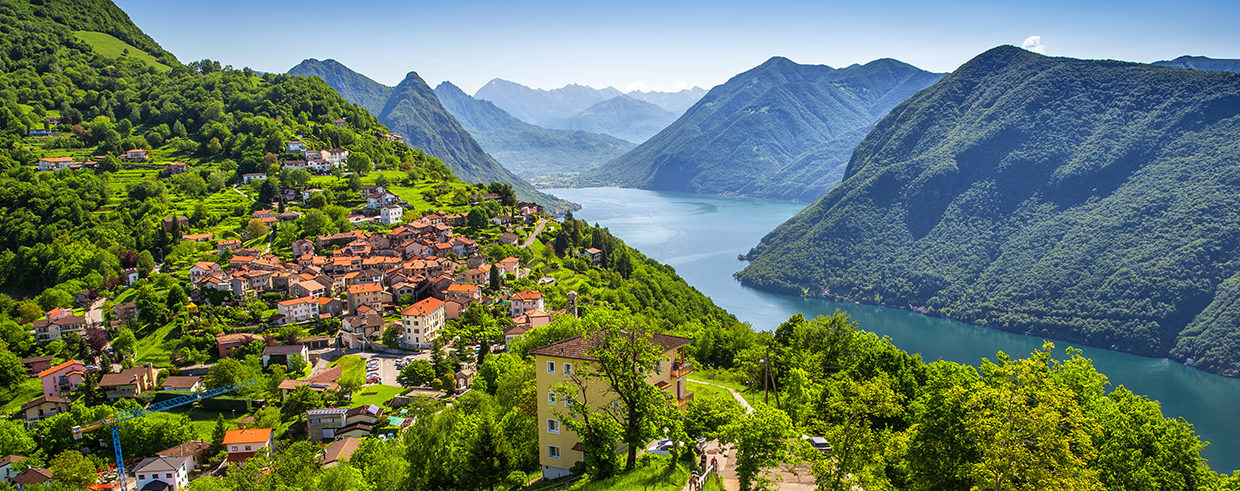
5 reasons to choose Ticino over Switzerland’s major cities
When thinking of Switzerland, minds often jump to cities like Zurich or Geneva—dynamic metropolises full of opportunities and international flair. Zurich is the financial heart of the country, modern and efficient, while Geneva is synonymous with diplomacy and multiculturalism.
However, there’s another side of Switzerland, perhaps less known but just as intriguing: the Canton Ticino. A region that blends Swiss order with the relaxed charm of Italian living. But what are the real advantages of choosing Ticino as a place to live?
1. The climate—Ticino’s great ally
One of the first things you notice—or rather, feel—is the particularly favorable climate. With over 2,300 hours of sunshine per year, Ticino enjoys the highest average in all of Switzerland. By comparison, Zurich offers around 1,700. This means brighter days, less rain, milder winters, and an earlier spring.
Regions like Mendrisiotto, Lugano, or Locarno have a Mediterranean feel, with palm trees, oleanders, and landscapes reminiscent of Northern Italy. In these conditions, it’s natural to spend more time outdoors: walks by the lake, breakfast on the terrace, hikes in the woods, or bike rides are all part of daily life.
Many residents moving from Zurich or Geneva say they have “found space to breathe again” and feel less overwhelmed, thanks to a climate that promotes social life and physical well-being.
2. More affordable real estate
The climate isn’t the only factor that makes life lighter. Ticino’s real estate market is still significantly more accessible than in the country’s major cities.
While in Zurich or Geneva average apartment rents can easily exceed CHF 1,600–1,800 per month, in Ticino—especially in Bellinzona or smaller towns—good options are available starting at around CHF 1,200. Property sale prices, although rising in recent years, remain lower than in more populous urban areas.
This gap also appeals to those seeking a second home or investment. Demand for seasonal rentals, fueled by tourism and remote working, has driven many Italian and German-speaking Swiss families to buy in Ticino.
3. Lighter taxes and less stress
When it comes to living well, the cost of living plays a key role. And in this respect, Ticino holds its own. Income taxes, although not the lowest in Switzerland, are still more favorable than in Geneva, where marginal rates can reach up to 44%.
Additionally, health insurance—which in Switzerland is paid by the individual—tends to have lower premiums than in Geneva and is often comparable to or slightly lower than Zurich, for the same coverage.
Savings at the end of the month can be significant. And when you factor in lower costs for dining out, groceries, public transport, and leisure, it becomes clear how real living standards can be higher than in cities with nominally higher salaries.
4. A more human pace of life
Ticino also means a simpler, more authentic lifestyle. Cities here are much smaller than Zurich or Geneva, offering the right balance between services and peace. Traffic is limited, air is clean, and within minutes you can go from city center to a forest trail or a lake beach.
People who move here often do so to escape the rush—and they succeed. Days unfold at a more natural pace, with less work-related stress and more time for family, friends, and nature. It’s an ideal environment for raising children or aging in a safe, beautiful, and livable place.
Culturally, Ticino is full of surprises. While it doesn’t match the event density of a metropolis, it boasts a lively calendar: film festivals, summer concerts, museums, and theatre seasons enrich local life throughout the year.
5. Smart working
Of course, those pursuing careers in multinational corporations or major banks may still find more opportunities in Zurich or Geneva. However, in recent years, remote work has changed the game.
More and more professionals now live in Ticino while working for companies based elsewhere, keeping higher incomes while benefiting from lower costs and Ticino’s superior quality of life. This solution is especially popular among young professionals, families with children, and so-called “digital nomads.”
Even so, the local job market is promising: Lugano is Switzerland’s third-largest banking center, and the canton is investing heavily in ICT, biotech, tourism, and the green economy.
In conclusion, living in Ticino doesn’t mean “settling” for a smaller reality—it means consciously choosing a more balanced lifestyle. The canton offers a rare mix: stunning scenery, a mild climate, economic accessibility, safety, growing job opportunities, and an efficient network of services.
Zurich and Geneva remain great options for those seeking urban dynamism. But if your goal is to strike a balance between well-being, work, and quality of life, then Ticino is a real, rewarding alternative waiting to be discovered.





